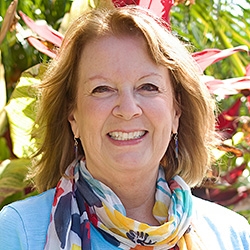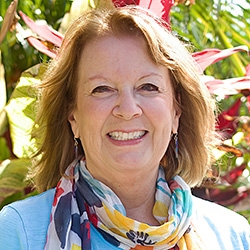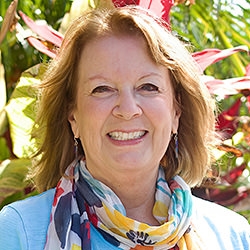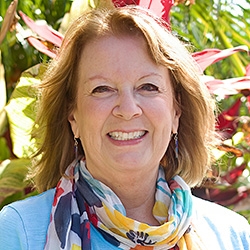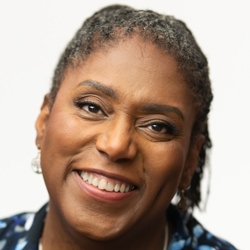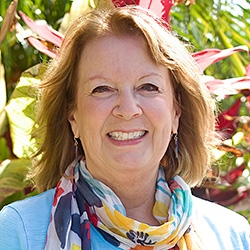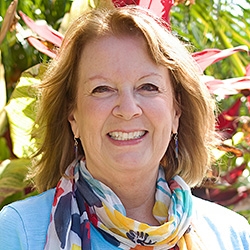
Search Results: compassion
-
Sometimes I hear people say things like, “I didn’t do Compassionate Communication this week.” Or “I tried Compassionate Communication when I was arguing with my wife last week.” Compassionate Communication is not a thing to do, or to pull out of our bag of tricks once in a while. Compassionate Communication is a consciousness of valuing everyone’s needs and of valuing connection more than being right, winning or protecting ourselves. It is a way of living.
-
In this 10 session telecourse recording, world renowned CNVC Certified Trainer Robert Gonzales will help you discover a new level of self-acceptance that can lead to profound emotional healing and a deeper spiritual presence.
-
Self-compassion is essential for healing trauma and restoring your wholeness. It is also an antidote to reactivity and separation, allowing presence to emerge.
In developing presence, you can become what the world needs most in these times of intensity and chaos. This work can strengthen your skills to be more fully in relationship with all that life offers while allowing your heart to be moved by what is alive in you and with others
-
Living Compassion, for Robert, represents the spirituality that resides in every aspect of Nonviolent Communication. Its foundational principles are represented by three primary qualities or states of being: clarity, compassion and empowerment.
In this course you’ll explore – and practice – how the unfolding of inner clarity opens your way to compassion, which further unfolds into empowerment. Throughout this unfolding process, Robert will include maps and tips for shifting your everyday life from one that is relatively limiting to a life that is both transformative, healing and liberating.
-
Trainer Tip: When do we move from using the formal 4-step process of NVC to a more idiomatic, natural-sounding expression? Whenever we're ready!
-
Trainer Tip: When we express frustration without blaming others and by clarifying our own needs and requests, we diminish the possibility of hurt feelings and separation in our relationships. So next time you feel very agitated or angry, rather than implying the other person is wrong or at fault, try the following: own your feelings, make a specific request, and rather than implying they need to give up their needs focus on your needs.
-
What would the world be like if there was flow between all of us based on "mutual giving from the heart"? Using examples, this article offers models for us to follow that could inspire us to treat our NVC practice as one of compassionate giving and receiving.
-
Living Compassion in an Ever-Changing World is the last course that Robert Gonzales offered before his passing in November of 2021. It is an intermediate course whose purpose is to deepen our conscious connection to our own vital life force, to develop skills that support inner healing, and to grow and strengthen daily practices that allow us to truly live life to the fullest.
-
Grow your compassionate presence with this 3-process exercise. The processes include: Connecting to and feeling the Life Impulse meditation, Creating your own inner space of compassionate presence exercise, and the Compassionately Embracing visualization. These processes will guide you toward deeper self connection and compassionate presence.
-
- Gain a deeper insight into the spiritual practice of NVC as taught by Robert Gonzales
- Enhance your emotional intelligence and self-compassion
- Learn compassionate self-talk techniques and cultivate more inner peace
- Approach change with a peaceful mindset, rather than anxiety and fear
-
In A Worldwide Field of Compassion, Robert Gonzales presents an engaging course steeped in compassion-based self-discovery for ourselves and all life. Recorded in 2020, this 8-session course includes handouts, readings, exercises, and video recordings!
-
Awareness of how we're holding our own and others' needs is important to our development. In learning to value needs, we often go through three stages: passive, aggressive/obnoxious, and assertive/mutual. As we learn and grow, we may relate to the following differently: Whose feelings and needs are important, who is responsible for what, how our choices impact others, and consideration for ourselves and others.
-
Trainer Tip: In Compassionate Communication, we consider needs to be universal. That means that while we all have the same needs, such as for love, support, shelter, food, joy, caring, etc., we choose different ways to meet our needs.
-
Listen to Robert describe the five core principles of Living Compassion and the relationship of needs to spirituality. Great material for reflection and reference!
-
Jeff shows us how to emply NVC to supercharge the possibility of transformation between two people in a mediation process.
-
Iris Bawidamann explains how needs, like appreciation, can easily turn into demands or self-blame when approached from a place of lack or expectation. This practice is based on the work of Living Compassion, shared by Robert Gonzales, focusing on the beauty of needs and the living energy of needs
-
In parenting, Roxy Manning notes the tendency for self-judgment and external judgment. Roxy suggests that being a single parent or a working parent influences your ability to implement parenting strategies. The importance of assessing the feasibility of strategies in one's current life context is emphasized. Roxy encourages self-compassion and mourning the gap between desired and achievable outcomes. Her message encourages understanding personal constraints and practicing self-compassion in parenting.
-
Trainer Tip: Making a request is critical because it can greatly lessen any tension in the situation. Plus, it can clarify for you and the people in your life what it would take to meet your need. Make at least one specific and doable request to someone today.
-
This holiday, shift your focus from what disappoints you to the true whisperings of your heart. Compassion is an inside-outside process. In this telecourse recording, you will experience four simple tools for savoring your own precious needs, allowing you to experience greater compassion and harmony this holiday.
-
Join LoraKim Joyner to investigate how merging science, the social and emotional intelligence of humans, animals and other species and Nonviolent Communication can bring a greater sense of belonging and wholeness to your life, and care and justice to the lives of others.

